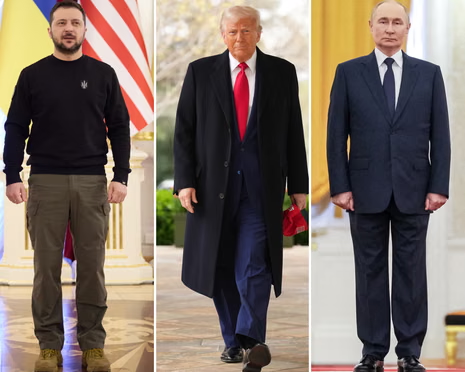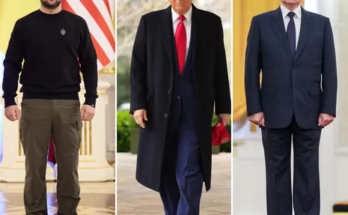As international leaders gather in Washington for high-stakes peace talks on Ukraine, Germany has taken a firm stance, calling for greater pressure on Russia and warning against any peace deal that undermines Ukraine’s sovereignty.
Foreign Minister Annalena Baerbock emphasized that Ukraine must not be forced into a “land-for-peace” bargain, stressing that Europe has a responsibility to stand united against Moscow’s aggression.
Germany’s Message
In a press briefing before the summit, Baerbock stated:
“Peace must never come at the price of Ukraine’s territorial integrity. We must increase diplomatic and economic pressure on Russia to stop its war.”
She outlined three priorities for Germany and its allies:
-
Stronger Sanctions on Russian industries, especially energy and defense.
-
Sustained Military Support for Ukraine, including air defense systems.
-
Diplomatic Unity among NATO and EU members to resist Russian demands.
Why This Stance Matters
Germany is Europe’s largest economy and a key NATO member. Its position significantly shapes Western policy.
-
Berlin has often faced criticism for being too cautious in confronting Moscow.
-
This new push signals a harder line, aligning more closely with Poland, the Baltic states, and the U.S.
Peace Talks Context
The summit in Washington brings together:
-
Volodymyr Zelenskiy, President of Ukraine
-
Donald Trump, who has presented himself as a mediator
-
European leaders including Germany’s Chancellor and France’s President
The talks will explore:
-
Ceasefire terms
-
Ukraine’s NATO and EU aspirations
-
Russia’s demand for recognition of territorial control
Russia’s Position
Moscow insists any deal must recognize its hold over Crimea and parts of Donbas, a condition Kyiv rejects.
The Kremlin has dismissed Germany’s call for more pressure, accusing Berlin of “fueling the conflict” by supplying Ukraine with weapons.
European Divisions
Not all EU members are fully aligned:
-
Hungary has pushed for a faster peace deal, even if it means concessions.
-
Poland and the Baltics argue for maximum resistance against Russian influence.
-
France is attempting to balance diplomacy with support for Kyiv.
Germany’s tougher stance is seen as an effort to close ranks before negotiations.
What’s at Stake
-
Ukraine’s Sovereignty: Any compromise risks legitimizing Russia’s territorial gains.
-
European Security: A weak peace could embolden further Russian aggression.
-
Global Energy: Extended sanctions could affect oil and gas flows, impacting markets.
Conclusion
Germany’s call for stronger pressure on Russia underscores the fragile balance ahead of peace talks. While the world hopes for progress toward ending the war, the debate over principle versus compromise continues to divide leaders.
For Ukraine, German support strengthens its position — but whether this unity holds through negotiations remains uncertain.
FAQs
Q1: What is Germany demanding before peace talks?
Increased sanctions on Russia, continued military aid for Ukraine, and no land concessions.
Q2: Why is Germany’s position important?
As Europe’s largest economy and a key NATO member, Germany heavily influences EU and transatlantic policy.
Q3: What does Russia want from peace talks?
Recognition of its control over Crimea and occupied eastern territories.
Q4: Is the EU united on Ukraine?
No — some states push for compromise, while others demand maximum resistance against Moscow.




